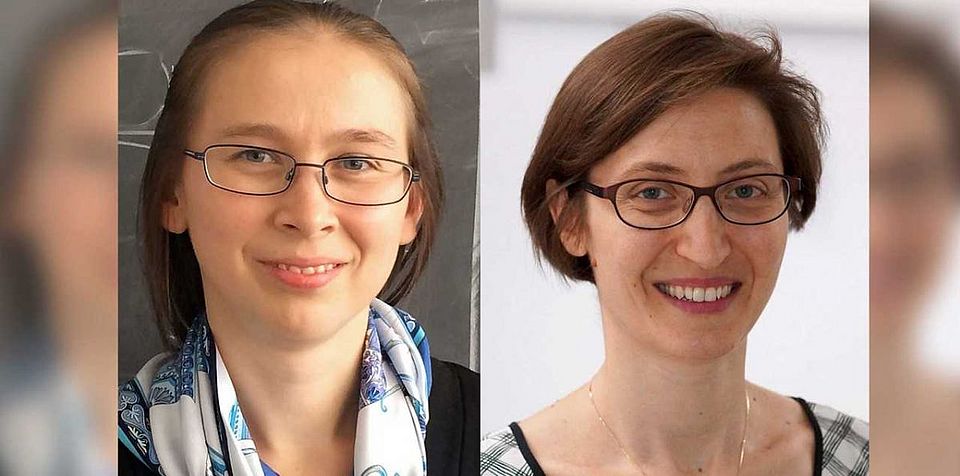/ Forschung / barfi.ch
Two Basel physicists receive millions in EU funding

The European Research Council (ERC) has awarded professors Jelena Klinovaja and llaria Zardo from the Department of Physics at the University of Basel one ERC Starting Grant each. The two physicists will thus receive up to 1.5 million euros for their ambitious research projects over the next five years.
The realization of a quantum computer requires that the information encoded in a quantum state - the qubits - can be preserved for as long as possible. However, current qubit systems are prone to errors and their lifetimes are insufficient. But there is a promising candidate in the race for long-lived qubits: so-called topological qubits.
A better understanding of the physical effects that limit the lifetime of qubits will answer important questions: can topological qubits overcome the shortcomings of conventional qubits? And can the two types be combined into hybrid structures that exhibit improved performance?
Yelena Klinovaya's theoretical project is concerned with topological phases in condensed matter systems. This is a dynamic field of research that has attracted much attention in recent years, in particular because of the promise that topological quantum computations could be tolerant to local errors.
The first detection of special topological states, so-called Majorana fermions, has been achieved in experiment. However, these states are not strong enough and do not allow all the basic universal operations needed for a quantum computer. In her ERC project, Klinovaja wants to go a crucial step further and study other exotic states that only occur in strongly interacting systems and that will be sufficient for universal quantum information processing. The ERC is funding these projects with about 1.2 million euros.
Yelena Klinovaya has been an assistant professor of physics at the University of Basel since 2014. She studied physics at the Moscow Institute of Physics and Technology. In 2009, she moved to the Department of Physics at the University of Basel, where she received her PhD in 2012; her thesis received an award from the Swiss Physical Society. In 2013, she received a three-year fellowship at Harvard University in Cambridge, USA, and worked there at the Department of Physics before taking up her position in Basel.
Controlling heat transport in nanomaterials.
Phonons are vibrations in crystals that are responsible for the transfer of sound and heat. Phononics is still a young field of research, and the control of phonons represents a challenging goal. If phonons can be manipulated in a targeted manner, it would be possible to precisely control heat or sound in any direction - much like light. Prof. Dr. llaria Zardo wants to get one step closer to this goal as part of her project, for which the ERC has granted 1.5 million euros.
The physicist plans to develop tiny thermal circuits that have suitable interfaces. Using these nanostructures, she hopes to trigger, study and manipulate the flow of phonons. Zardo's project promises to provide a deeper understanding of quantum physics and will be of great importance for both basic research and applications to control heat transport.
In addition, llaria Zardo and her team hope to answer the question of whether the field of phononics can complement electronics. Because phonons interact with electrons and photons, advances in phonon manipulation can also help improve the performance of electronic and optoelectronic devices.
llaria Zardo has been an assistant professor of Experimental Material Physics at the University of Basel since 2015. She studied physics at La Sapienza University and received her PhD from TU Munich in 2010. In 2015, she received the Hertha Sponer Prize, awarded by the German Physical Society to young female scientists for their outstanding scientific work in the field of physics.
ERC Starting Grants
The Starting Grants of the European Research Council (ERC) are among the most prestigious funding contributions for young researchers in Europe. With these grants, the ERC honors innovative basic research and promotes the independent work of excellent young researchers. The aim of the grant is to establish and consolidate an independent research group. The ERC Starting Grants are part of the European research framework program Horizon 2020.
